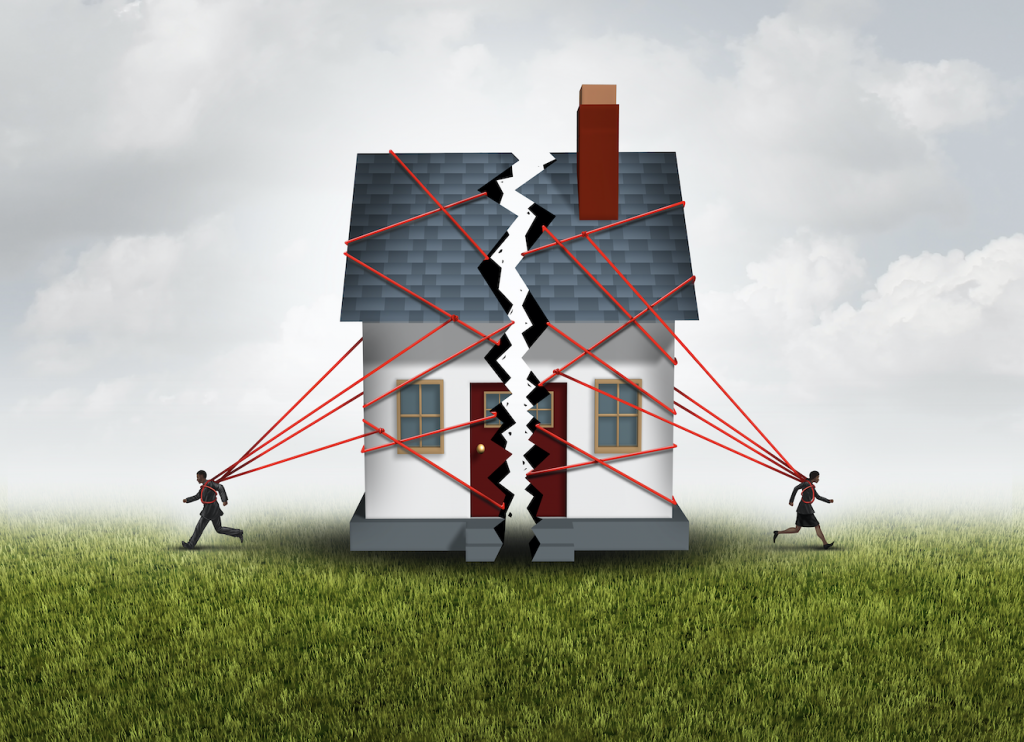Reform of the divorce laws in April could lead to fewer couples sharing pensions, potentially disadvantaging many women.
LCP partner and former pension minister Steve Webb and specialist barrister Rhys Taylor have warned that these changes – designed to simplify a ‘no fault divorce’ and move much of the process online – will see result in fewer cases where pension wealth is shared fairly.
These changes will be introduced in April 2022 and are the biggest shake-up in divorce law for half a century.
Under current law, a divorce can only be granted on the basis of the ‘irretrievable breakdown’ of a marriage. A period of separation of at least two years is regarded as sufficient evidence, provided both parties agree. To divorce more quickly requires one spouse to demonstrate ‘fault’ on the part of the other spouse – for example, because of alleged adultery.
The forthcoming changes will remove the requirement for one party to prove ‘fault’. Key features of the new system are:
- Divorce papers can be filed by one or both members of a couple, this has to be done online by default
- Where one party files for divorce, they then have 28 days to notify the other party; this notification should be by email by default, although a printed confirmation of the sent email should also be sent through the post
- Twenty weeks after first filing, an application can be made for a ‘conditional order’ for divorce (currently called ‘decree nisi’) and after 26 weeks, an application can be made for a ‘final order’ for divorce (currently called ‘decree absolute’)
- Because divorce orders are granted on a ‘no fault’ basis, a party who does not wish the divorce to go ahead can generally do little to stop it, unless proper procedure has not been followed
- Financial matters are dealt with by a separate and parallel process which can sometimes continue after the final order has been granted
Webb says that this move to ‘no fault’ divorce has been widely welcomed and is designed to streamline the process and to reduce the extent to which divorce is an acrimonious process.
However there are concerns that the new divorce law, coupled with the increased move to an online process, could further undermine the effective sharing of pension wealth.
In their new paper on this issue, Webb and Taylor note that currently financial orders are only made in around one in three divorces — and not all of these financial orders include pension orders.
This means that formal orders in respect of pensions only apply in a minority of cases. Whilst it is possible that in the remainder of cases pensions are being fully and fairly shared by offsetting against other assets, there says there are many reasons why this is often not likely to be the case.
This may be because spouses under-estimate the potential value of pension wealth. In some cases, DB benefits may be worth far more than the family home, but Webb and Taylor say this point may not be well understood. In addition in cases where children are involved, the party with the lower level of pension wealth — usually the wife — may be more focused on other priorities such as somewhere to live and financial security and support for children.
The authors say this streamlined process could make this problem even worse. In some cases, a spouse may receive notice that a divorce application has been made just a few months before the court is asked to grant the first divorce order.
They may be dismayed to discover that there is little or nothing they can do to stop or delay the process if the other partner is insistent on going ahead, and will also have to deal with a range of practical issues including care of any children, impact on living arrangements and short-term financial support post-divorce.
Against this backdrop, taking time to make sure pension rights are included in any settlement may be a low priority.
The authors are calling for greater ongoing research and monitoring into what happens during the divorce process with regard to taking account of pension wealth, and for close scrutiny by the Ministry of Justice into whether attitudes and outcomes on pensions change as a result of the new divorce process.
Webb says: “One group currently at high risk of retirement poverty is divorced women. In large part this is because relatively little attention is often given at the time of divorce to a financial settlement which gives proper weight to pension wealth. It is entirely understandable that divorcing couples focus on other matters, but the risk is that people simply do not understand the value of pensions.
“Whilst there is much to commend the new divorce law, it would be very unfortunate if a by-product was that even fewer divorces were accompanied by a fair sharing of the couple’s overall wealth, and in particular of pensions”.
Taylor, a family law barrister specialising in pensions on divorce, adds: “I very much welcome the new divorce law, but the family justice system needs to be astute to avoid the law of unintended consequences. So often pensions are the last thing anyone really wants to think about, especially on divorce.
“Care needs to be taken to ensure that the fair distribution of pension wealth on divorce is not overlooked in this brave new era.”
